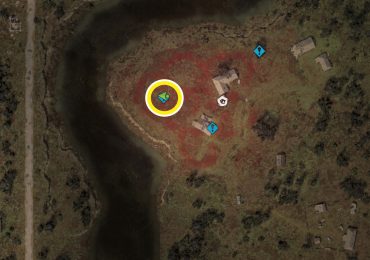
Sprinkled into TikTok’s endless feed of videos, you can find all sorts of content related to video games. You can see lore analysis videos, cool tips and tricks, cosplay, and, if you’re lucky, thirsty edits of characters like Leon Kennedy. The platform has become a place where people can learn about the games they love and discover new ones. Some games, like The Wandering Village, have specifically flourished thanks to TikTok and have found millions of viewers on the app. But now, that could all go away.
In April, U.S. President Joe Biden signed a bill into law that will ban TikTok if its China-based parent company, ByteDance, doesn’t divest from the platform within 270 days of the bill’s signing. Polygon spoke to Philomena Schwab, a co-founder of Stray Fawn Studio, about how TikTok impacted the development of the team’s game, The Wandering Village. If TikTok went away, Stray Fawn Studio would not just be losing its account but also its direct line to the consumers of games themselves.
“We [had] some pretty big posts even early in development, which reassured us to continue to work on the project for longer because if we hadn’t had that reassurance, not only from TikTok but also from the Wishlist count — like, how many Wishlists we got out of the posts and so on — we probably would have wrapped up the early access version sooner,” Schwab said via video chat. “I think it was good that we didn’t, because it was a pretty good release at the end. It helped us have courage in the game.”
At time of publication, Stray Fawn Studio has more than 68,000 followers on TikTok and has videos that have more than 899,000 views. Statistics like the number of followers on social media platforms can directly impact the success of current and future games. Schwab said she includes social numbers on her pitch decks, which, in turn, can help secure the studio funding. She checked, and roughly 55% of the followers on the Stray Fawn account are American — so the team would lose over half its followers on the platform if TikTok were banned, and that’s not even counting Americans who have just liked or viewed their videos.
In the case of The Wandering Village, the TikTok account’s success also had a direct influence on the number of Wishlists the game received on Steam. Schwab told Polygon that if a post had more than 200,000 views, then it would “always” result in “several hundred Wishlists.” According to Schwab, “You could clearly see the spikes coming in over time. So that has definitely contributed quite a bit.”
TikTok also allowed the members of the team to find their voice. TikTok allows users to share video replies to comments and questions, and Schwab told Polygon it really allowed the personalities of team members to shine.
“I think aside from the marketing benefits, it also has helped shape the tone of our studio a little bit, because we found that inherently, we are a pretty silly, funny group of people. And on other social platforms, we didn’t really feel like we could show that very well. And on TikTok, it absolutely came out. I think we made a lot of silly content. And it did pretty well on the platform, which encouraged us to embrace this kind of studio mentality more,” Schwab said.
The Wandering Village isn’t a huge viral hit, but that’s why TikTok has been so valuable for the team. TikTok and its algorithm can allow a post from any person or profile, regardless of follower size, to go viral. Adam Lieb, the CEO at a marketing platform called Gamesight, told Polygon about the unique strength TikTok has to connect fans to games.
“I think one of the things we see for indies which is something that makes TikTok truly unique is that content creators aren’t gated by [the number of followers] the same way that [they are on] pretty much every other platform,” Lieb said via video chat, “The algorithm — the mysterious man behind the curtain — does allow content to get surfaced to more people, regardless of following. And so we’ve seen just some amazing, amazing success stories on TikTok, which aren’t really paid marketing because they’re not usually like running a bunch of ads.”
There have always been indie darlings and surprise hit video games, regardless of TikTok. However, TikTok has played a key role in allowing even more indie creators to make hit games that go viral in a matter of days. In the past two years alone, surprise hits like Palworld, Lethal Company, and Sons of the Forest have grown massive audiences. All have a presence on TikTok because the games have so many catchy, clippable moments.
“The ability to go from nothing to something doesn’t really exist [on other platforms]. So you would think of games like Lethal Company, Sons of the Forest, or Content Warning, all those games have over a billion views of their game on TikTok, which is just a completely absurd number. If you were to compare that to something like Twitch? No way, you know, in a million years,” Lieb said.
While TikTok helps bring viral hit games to life and supports game developers, its demise would also have a giant impact on all the people who love to play those games.
“For a lot of players, a big part of what they get out of the game experience is community — we broadly call it community, community is such a generic term — but they engage with the game outside the game and TikTok is certainly one of those places they do that,” Lieb said.
If the U.S. banned TikTok, it would impact the creators behind these games. It would also impact the millions of users on the app, and those who like video game content. A video that brings new eyes to a game and helps a developer get more Wishlists for a game could also be the video that prompts excitement online within a group of players. Oftentimes, the jokes and memes around a game can be as enjoyable as the content itself, since it can allow people to feel like they’re a part of something larger. For now, game developers and the players who enjoy their games will just have to wait and see if they’ll be left to scramble to the next platform.
Correction: A previous version of this article misstated the name of Gamesight’s CEO as Thomas Schulenberg. The correct name is Adam Lieb. We have edited the article to reflect this.








